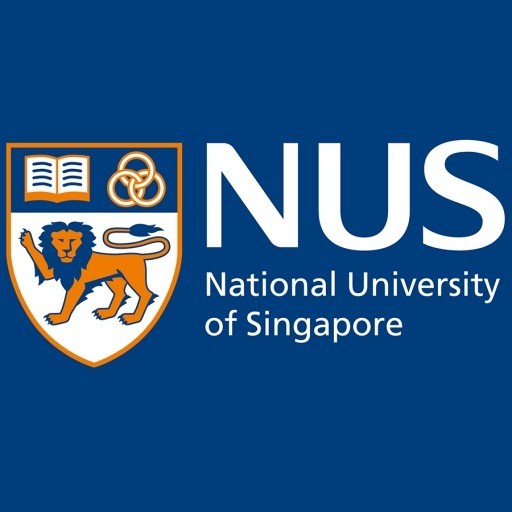Photos of university / #nus_singapore
The Bachelor of Engineering in Chemical Engineering at the National University of Singapore offers students a comprehensive and rigorous education in the principles and practices of chemical engineering. This programme is designed to equip students with a strong foundation in mathematics, chemistry, physics, and engineering principles, enabling them to develop innovative solutions to complex problems in the chemical, pharmaceutical, energy, environmental, and materials industries. Throughout the course of study, students engage in a blend of theoretical coursework, practical laboratory work, and industry internships, fostering both technical competence and real-world experience.
The curriculum covers core areas such as thermodynamics, fluid mechanics, heat and mass transfer, process design, and chemical reaction engineering. Specialised modules include operations management, process control, process safety, and sustainable engineering practices. Emphasis is placed on the integration of multidisciplinary knowledge, enabling graduates to participate in process optimisation, scale-up, and the development of new chemical products and processes. The programme also encourages innovation and entrepreneurship, preparing students to adapt to the rapidly changing landscape of the global chemical industry.
Students benefit from state-of-the-art laboratories, research facilities, and collaboration with industry partners, providing opportunities for hands-on learning and research projects. The programme nurtures essential skills such as problem-solving, critical thinking, teamwork, and effective communication. Graduates of the Chemical Engineering programme are well-positioned for careers in sectors such as chemical manufacturing, energy, environmental management, pharmaceuticals, and consulting. Additionally, the programme offers pathways for postgraduate studies and professional accreditation, including accreditation by engineering professional bodies, ensuring graduates meet international standards of engineering excellence.
The NUS Chemical Engineering programme aims to develop future leaders who are innovative, ethical, and committed to sustainable development. By combining academic excellence with practical training, the programme prepares students to contribute meaningfully to societal progress through advancements in chemical engineering processes and technologies. Graduates leave equipped with the knowledge, skills, and mindset necessary to drive innovation and promote sustainable practices in various industries worldwide.
Core Modules
- CN5010 Mathematical Methods in Chemical & Environmental Engineering
- CN5020 Advanced Reaction Engineering
- CN5030 Advanced Chemical Engineering Thermodynamics
- CN5040 Advanced Transport Phenomena
- CN5050 Advanced Separation Processes
Elective Modules
Group 1*
- CN5111 Optimisation of Chemical Processes
- CN5131 Colloids and Surfaces
- CN5161 Polymer Processing Engineering
- CN5162 Advanced Polymeric Materials
- CN5172 Biochemical Engineering
- CN5173 Downstream Processing of Biochemical & Pharmaceutical Products
- CN5181 Computer Aided Chemical Engineering
- CN5191 Project Engineering
- CN5192 Future Fuel Options: Prospects and Technologies
- CN5193 Instrumental Methods of Analysis
- CN5222 Pharmaceuticals and Fine Chemicals
- CN5251 Membrane Science and Technology
- CN5252 Metabolic Engineering
- CN5371 Special Topics in Biochemical Engineering and Bioseparations
- CN5391 Selected Topics in Advanced Chemical Engineering – I
- CN5392 Selected Topics in Advanced Chemical Engineering – II
- CN5401 Contemporary Topics in Advanced Chemical Engineering
- CN5555 Chemical Engineering Project
Group 2
- ESE5202 Air Pollution Control Technology
- ESE5602 Environmental Management Systems
- SH5004 Fundamentals in Industrial Hygiene
- SH5201 Hazard Identification and Evaluation
- SH5202 Quantified Risk Analysis
- SH5204 Safety Engineering
*All modules listed are worth 4 MCs each except for CN5401 Contemporary Topics in Advanced Chemical Engineering which is 2 MCs and CN5555 Chemical Engineering Project which is 8 MCs.
Not all modules listed above are necessarily available in any one year, and new modules may be made available from time to time.
- At least a Bachelor's degree in Engineering or its equivalent.
- Payment of application fees (S$50)
- The page of your passport bearing the passport number
- Employment pass / work permit
- Documentary proof of change in name (if you had your name changed and your name in NRIC / Passport is not identical to the name printed on your degree scroll / certificate and university transcript)
- Polytechnic results and certificate (if applicable), or its equivalent
- Original official transcript, or its certified true copies,
- Financial statement indicating a balance of at least S$25,000 or its equivalent to show applicants’ ability to support themselves financially (i.e. estimated expenses of S$25,000 a year in Singapore) - only applicable to International applicants applying for full-time courses and who are not residing or not working in Singapore.
- TOEFL scoresheet indicating a min. score of 92 (internet-based test) or IELTS (Academic) result of 6.5
- Referee reports / recommendation letters
The Chemical Engineering undergraduate programme at the National University of Singapore offers a comprehensive range of financing options to support students throughout their studies. Tuition fees are structured to be accessible and competitive within the region, with detailed information available on the university’s official website. The university provides various scholarships, including merit-based awards, which recognize academic excellence, leadership, and potential contributions to the university community. These scholarships are highly competitive and often cover partial or full tuition fees, as well as allowances for living expenses. Additionally, there are need-based financial aid schemes designed to assist students from less privileged backgrounds, ensuring that capable students can pursue their education without financial barriers.
Apart from scholarships and financial aid, the university collaborates with external organizations, government agencies, and industry partners to offer internships, grants, and sponsorship programmes that can help offset costs. For international students, specific financial support options are available, including Joint Scholarships and ASEAN scholarships, tailored to foster diverse and inclusive academic environments. The university also provides a Payment Scheme that allows students to pay tuition fees in instalments, easing the financial burden over the duration of their studies.
Students are encouraged to explore part-time work opportunities permitted under the university’s regulations, which can supplement their income while gaining valuable industry experience. Furthermore, students enrolled in the programme have access to financial planning services and advice to help manage their educational expenses effectively. Overall, the National University of Singapore prioritizes accessible, transparent, and diverse financing options to enable talented individuals to achieve their educational and career goals in Chemical Engineering.
The Bachelor of Engineering in Chemical Engineering at the National University of Singapore is a rigorous and comprehensive undergraduate programme designed to equip students with foundational and advanced knowledge in the principles and practices of chemical engineering. The programme emphasizes a strong understanding of chemical processes, thermodynamics, transport phenomena, chemical reaction engineering, process control, and material science, integrating these core concepts with practical skills through laboratory work, industry internships, and project-based learning. Students are encouraged to develop problem-solving abilities and innovative thinking vital for careers in the chemical, petroleum, pharmaceutical, food, and environmental industries.
The curriculum typically spans four years, including a mix of compulsory modules, electives, and industrial attachments that provide real-world experience. The programme also fosters interdisciplinary learning, allowing students to explore related fields such as environmental engineering, materials science, and sustainable development. In addition to technical coursework, students undertake coursework in mathematics, physics, and chemistry to build a strong scientific foundation. The programme is accredited by relevant engineering bodies, ensuring it meets international standards for quality and professional recognition.
Research opportunities at the university allow undergraduates to collaborate with faculty on cutting-edge projects in areas such as renewable energy, nanotechnology, process optimisation, or pollutant control. Students are also encouraged to participate in international exchange programmes, internships, and industry visits to broaden their global perspective and professional network. Graduates of the programme are well-prepared for careers in process engineering, design, manufacturing, research and development, or to pursue postgraduate studies. The university’s state-of-the-art laboratories and strong links with industry partners provide excellent resources and opportunities for experiential learning. The programme aims to produce competent, innovative, and socially responsible engineers who can contribute to sustainable technological solutions globally.






